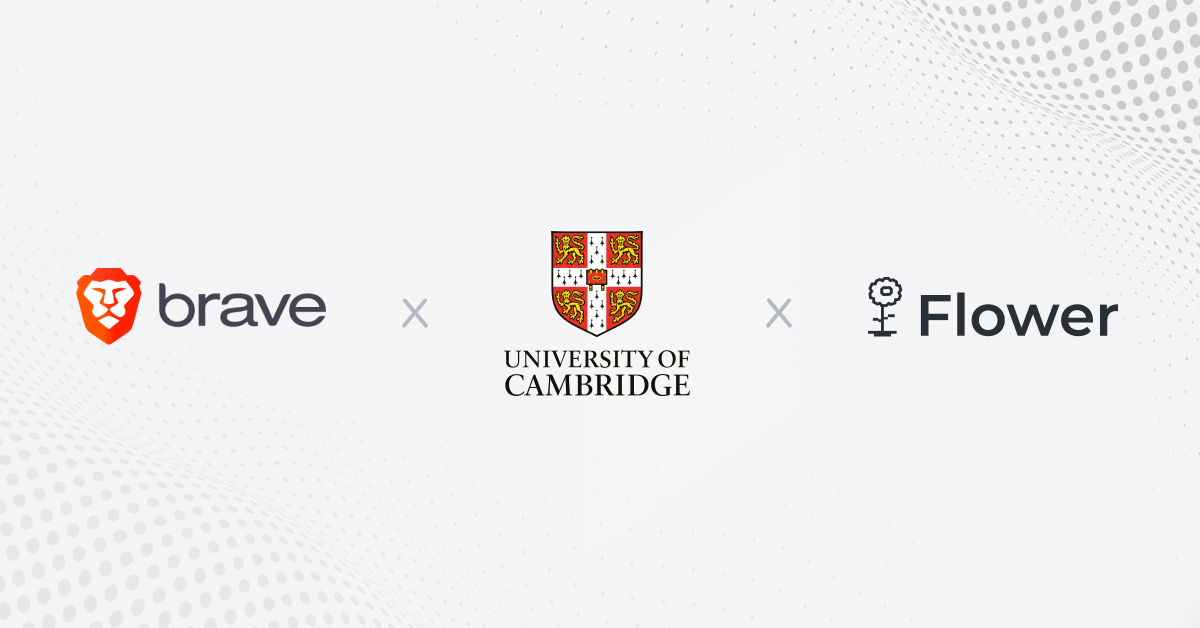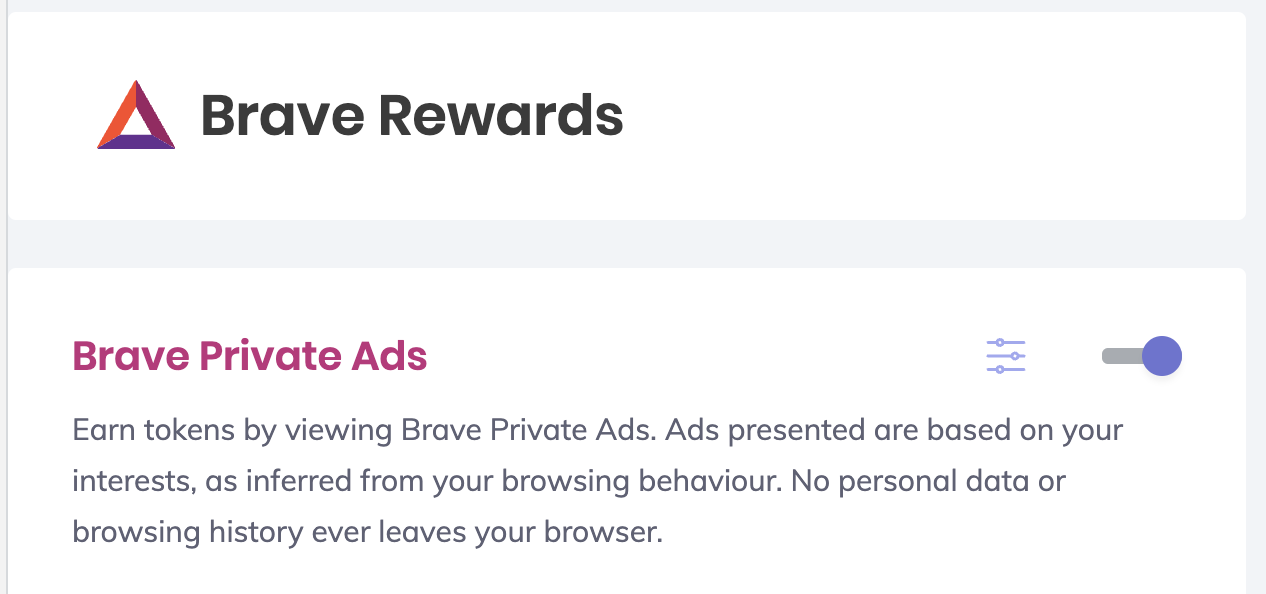Private Ads with Brave & Flower: Call for volunteers in FL user study


The University of Cambridge, Flower, and Brave are collaborating to bring federated learning to advertisement serving in a privacy-focused real-world environment.
What's this about?
Brave Browser is an open-source privacy-focused browser with its own privacy-preserving advertisement serving system, called Brave Ads, which serves ads as push notifications.
We want to leverage the power of Federated Learning to find the best times to show an ad notification through Brave Ads. This is done by learning a global ad timing model without ever having the user's data leave their devices. With your help, we can prove this works and lead the way towards more private digital advertising!
We are looking for 500 participants for a user study that will enable us to improve our machine learning model and evaluate the new infrastructure in terms of both model performance and user experience. You can apply only if you are 18 years of age or older and live in any of the Brave Ads Supported Countries, irrespective of whether you're a new or existing user of Brave and/or Brave Ads. You can only sign up for the study from your desktop installation of Brave.
How can you help?
We will be looking to collect low-sensitivity browsing behaviour data over the course of 28 days, during September 2022.
You can enable this by activating an experimental feature in your browser, which you can disable at any time. Enabling this feature will not impact in any way the functionality of your browser.
After 28 days, you will have the option to share with us the data that has been collected locally on your device. You can decide if you're happy to share the collected data after inspecting it on your machine. At this stage, you will also be prompted to fill in a short post-user study questionnaire, so we can learn more about how and why you use ads.
What kind of data will be collected?
We will only be collecting low-sensitivity data, such as the number of tabs you have open (but not what's in them), what time of the day you clicked on an ad (but not what ad), and how long you waited before dismissing an ad, and so on. No data about your browsing history will be recorded for this user study. No personally identifiable information (PII) will be collected other than your email address which we'll only use to point you to the post-user study questionnaire, as well as for the raffle and NFT.
The data will be combined in a large data set with the data of other users, and it will never be linked directly to you.
You have complete control and can opt out at any moment. Your data will be collected locally for 28 days. During this time, you can inspect the data and see what exactly has been collected at any point. You will receive instructions about how to do so. If you're happy with it, you can then choose to submit it to us for research purposes. The data is only on your device until you choose to send it to us.
You can also have a look at the project’s source code on GitHub.
How will your data be used?
The data will be used for the specific purpose of improving the federated ad timing feature. Access will be restricted to the research team composed of researchers and engineers from the University of Cambridge, Flower, and Brave, and the data will be deleted after 1 year.
The data is only collected locally and it is never sent anywhere. You will have to manually upload a file with the data that has been collected on your device if you want us to use it in research.
What's in it for you?
Volunteering for this user study is a chance for you to contribute to an exciting research project led by the University of Cambridge, a real-world application of the Flower open-source framework, as well as to an open-source browser used by over 50 million people.
At the end of the study, you can also choose to enter our prize raffle for the chance to win one of the twenty (20) $50 Amazon gift vouchers. There's also a POAP (Proof of Attendance Protocol) NFT (non-fungible token) up for grabs!
How can you join?
This study is now closed to new participants. Thanks for your interest and we hope to collaborate with you soon.
-
Sign up here with your email address for our mailing-list. We will only use this email address to include you in the prize raffle and send you the link to the post-user study questionnaire.
-
Download the Brave Browser or if you are a current user, make sure to update your installation to the latest version. For the entire study duration (28 days after beginning data collection), you should use Brave as your primary web browser on your desktop.
-
Type brave://rewards in the URL bar and enable Brave Private Ads if you haven't done so already, as seen below. This will enable the Brave Ads module, in which we are planning to include the federated ad timing feature.

-
Type brave://flags in the URL bar and search for #brave-federated. Change this setting from Default to Enabled, as seen below, to start the local data collection process.

-
Once 28 days have passed, go to brave://federated-internals/ to inspect the data that's been collected. If you're happy with it, click the Dump button to save a CSV file to your computer, named notification-ad-timing_dump.csv.
-
You will receive an email at the email address you used to sign up, prompting you to complete a post-user study questionnaire from the University of Cambridge. At the end of this questionnaire, you will be asked to upload the CSV file with your data if you wish to be considered as a volunteer for this study.
Please don't hesitate to reach out on the if you have any questions.